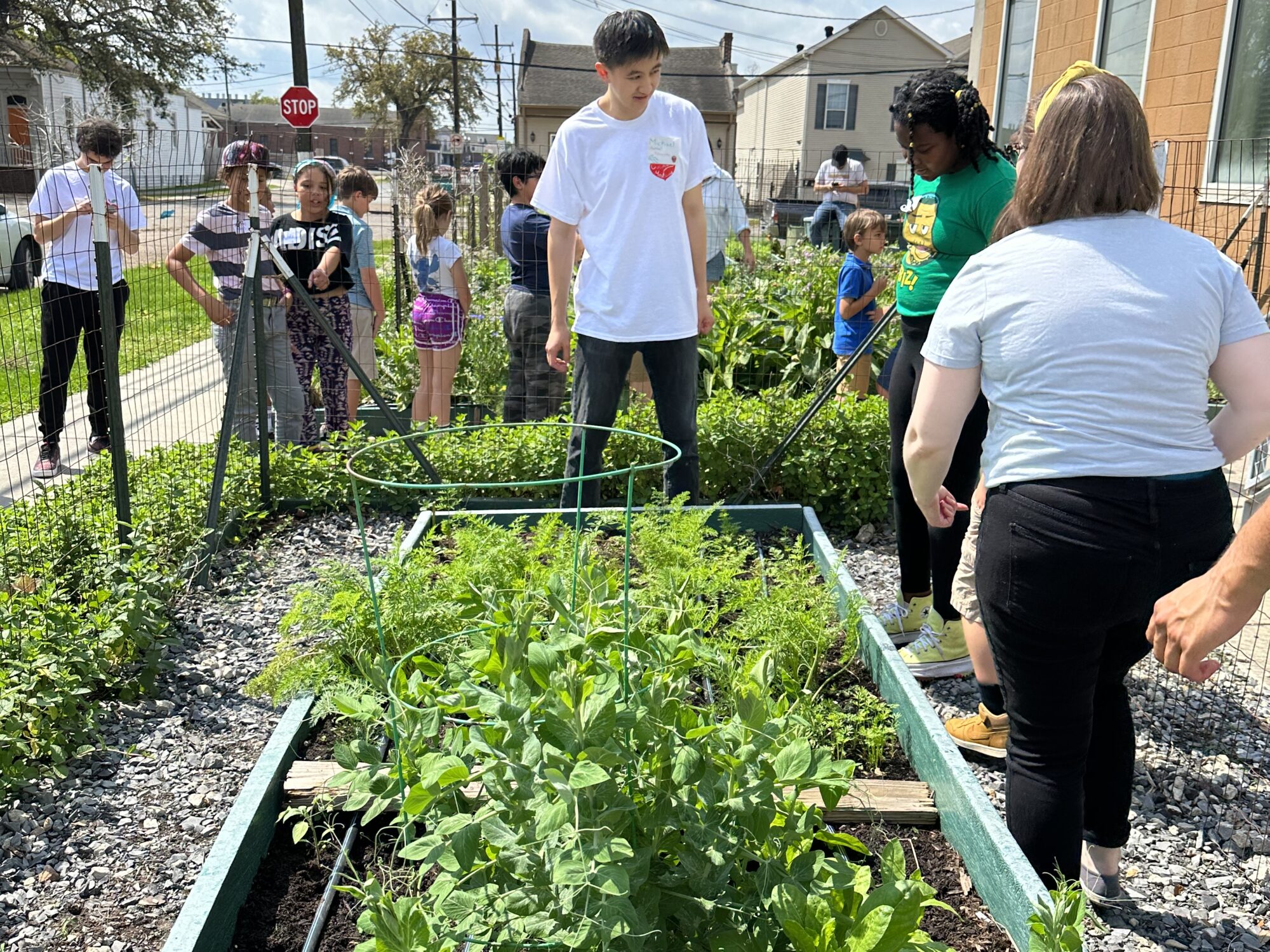Changemaker Catalyst Award recipient Michael Yang completed an internship at the Goldring Center of Culinary Medicine in the 2023 spring semester. Michael is a junior majoring in Cell and Molecular Biology with a minor in Public Health. Michael was named a Fulbright Scholar and will pursue an MSc in Nutrition and Food Science in the United Kingdom as part of the Fulbright / University of Reading Award in Food Security before attending Tulane University School of Medicine in 2024.

Throughout my undergraduate time, I have passionately strived to further my understanding of the relationship between nutritional food access and diet-induced diseases. This past semester, I volunteered as a Culinary Medicine Intern at the Goldring Center for Culinary Medicine (GCCM), an experience that has turned out to be one of the most influential of my undergraduate time.
The Goldring Center for Culinary Medicine was founded in 2012 as the first teaching kitchen to be implemented within a medical school. Located within the ReFresh Project, a community hub constructed after Hurricane Katrina aimed at addressing health disparities in the surrounding areas, GCCM hosts both free community cooking classes and first-year medical school education classes through a culinary medicine curriculum.

As part of my internship, I was able to join in on the first medical students’ Culinary Medicine elective rotations. The medical school curriculum was organized in 6-week blocks, where each week would introduce case studies that overlapped with that week’s nutritional topic ranging from protein to inflammation to allergens. Free community cooking classes would take place after these medical school lessons with adult beginner and intermediate classes taking place on Wednesday and Thursday evenings, respectively. Having taken part in multiple 6-week blocks, I was able to develop multiple relationships with my cohorts in both the medical school and community cooking class groups, where some of my greatest joys came from interacting with these local residents, hearing about their personal reasons for joining the cooking program, and seeing their progress and confidence grow every week they returned to class. I developed a particular relationship with “Shay,” a native of New Orleans who wanted to learn how to cook healthier meals for her family. We became partners every week in that six-week beginner’s cooking block, and through all of our avid discussions of preparing a roux and the best po’ boy shops in the city, I truly found it most rewarding to hear about the new meals that “Shay” had cooked that week.

One of my favorite sessions was helping lead a cooking program for the New Orleans Health Leaders Program, a program started by Tulane to support local underrepresented undergraduate students in the medical school application journey. During this lesson, I was paired with “Steve,” a sophomore attending university in New Orleans. Despite our differences in background, we quickly found a commonality in our public health studies and love for medicine. Coincidentally, I learned that Steven was accepted into a summer medical program in my hometown of Los Angeles, and I had been accepted into the Northwestern Medicine Pre-Med Internship Program in his hometown of Chicago. Our conversation ranged from must-visit sites and restaurants in our hometowns to our undergraduate studies to our shared interest in addressing community health disparities. Dozens of conversations and connections, like this one with Steven, occurred over my internship time, and I am forever grateful for being able to grow in my understanding of culinary medicine while working directly with local community members sharing the same passion for food and health.


